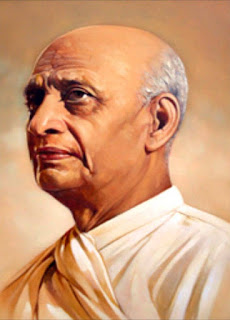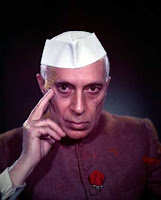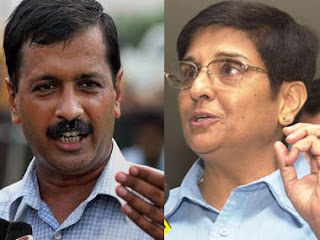UPSC Mains Essays - an Ideal format
Here I present an ideal essay, from each of the two Sections.
ESSAY - Dreams which should not let India sleep.
The Kalam spark and Brand India
 India’s ex- President the late Dr. APJ Abdul Kalam had once said that "Dream is not that which you see while sleeping; it is something that does not let you sleep.” It aptly summed up his dream of the kind of dreams Indian youth should live.
India’s ex- President the late Dr. APJ Abdul Kalam had once said that "Dream is not that which you see while sleeping; it is something that does not let you sleep.” It aptly summed up his dream of the kind of dreams Indian youth should live.
The Indian economy is looking up and India is being given its due recognition now in international circles. We have come a long way since Independence. We are now seen as an influential world power and Brand India is well on its way to become a success. However there is much that needs to be done in many sectors. There still are many paradoxes that need to be addressed both internally and externally.
A nation of paradoxes
India has been a nation where the good and the bad, the rich and the poor, the accomplished and the wanting, have co-existed. It is no longer a matter of romantic theorizing, many critical aspects of our national life need an urgent fixing. These striking paradoxes often rattle, and make the establishment sit up and take notice, but lasting change hardly comes by.
Dream No. 1
Women’s Safety - We can now fire an Agni V to destroy our most capable enemies, but our women cannot travel safely in public transport. We are conceptualizing and executing the cheapest journeys to Mars, but our girls fail to successfully complete the journey from mothers’ wombs to the birth table. This is an issue of concern not just in the hinterland, but in major metros as well. Women are subjected to hardships on many fronts - sexual exploitation at the workplace, domestic violence, lack of proper medical facilities, lack of education etc. The Government enacts laws to ensure that women get a proper system of redressal and their rights are not curbed. Some of these laws are:
- The Domestic Violence Act, 2005
- Sexual Harassment of Women at Work Place (Prevention, Prohibition & Redressal) Act, 2013
- Prevention of Children from Sexual Offences Act, 2012
However, the implementation leaves much to be desired. As a society, India has to truly liberate its women so that they can contribute to nation-building that can help us leapfrog. We have a long way to go.
Dream No. 2
A harmonious society sans Terror - The dream of eliminating terrorism in all its forms should energise us always. India in the past has been the victim of both left wing and right wing extremism. In fact, former PM Shri Manmohan Singh labeled Left Wing Extremism (LWE) as the biggest threat to our internal security. According to analysts, 183 districts in India across 7 states in India are affected by LWE. The Government of India has made efforts to curb this menace militarily as well as economically. But LWE continues to be a source of much concern. Unless we create a harmonious solution, a significant part of our population will stay insurgent, harming our national goals.
Cross-border terrorism in Kashmir and other parts of India is severely distorting our national agenda. The current Government has taken tough measures on cross-border terrorism and it may have started paying dividends, but one attack on a high-visibility target can effectively derail the bilateral Indo-Pak talks. Pakistan must realize that a mighty India cannot be subdued, and its own incremental destruction is of no use to India or its own citizens. All Indians must come together to act as good citizens, keeping our agencies informed of any nefarious designs, and ensuring our youth does not get radicalized by any daydreaming terrorist organization like the ISIS or Al-Qaeda.
A terrorism free India is indeed a dream that should not let India sleep.
Dream No. 3
A happy Indian society – As privileged Indians, each one of us should not rest until the last disadvantage Indian has not been educated, properly fed, clothed and given a shelter. Also, we can’t stop till India is cleaned up and stays that way. While the Directive Principles of State Policy (DPSPs) intended right from 1950 to ensure this, it is only in the recent past that we have enacted laws such as the Right to Education (RTE) and the Food Security Act that put bring an air of reality to the vision of Founding Fathers. The Government of India has many employment schemes for the rural and the disadvantaged people. These schemes contribute in making this dream a reality. In June 2015, the Indian Prime Minister launched three of the most ambitious schemes of all time- smart cities, AMRUT, housing for all by 2022.
Under this scheme, also called the Pradham MantrI Awas Yojana, the Central Government has targeted building two crore homes for the urban poor by 2022. The government will provide Rs 1-2.3 lakh assistance per house under different components of the scheme, including in-situ redevelopment of slums using land as resource, credit-linked subsidy scheme, affordable housing in partnership and beneficiary-led individual construction or improvement of homes. The Government has identified 305 cities and towns for the same. The Swacch Bharat Mission aims to achieve a clean India by the year 2019.
Such initiatives, if pursued diligently and implemented honestly, have the potential to change India to a sensitive nation that cares for its citizens.




















